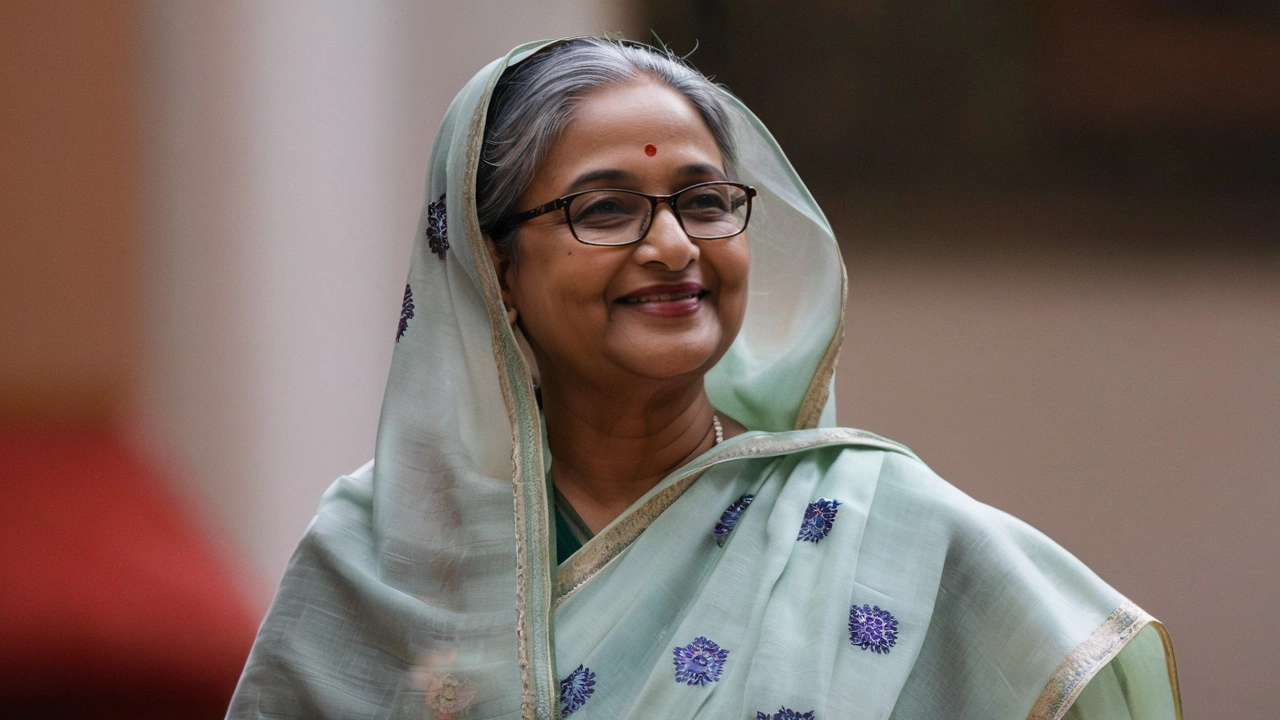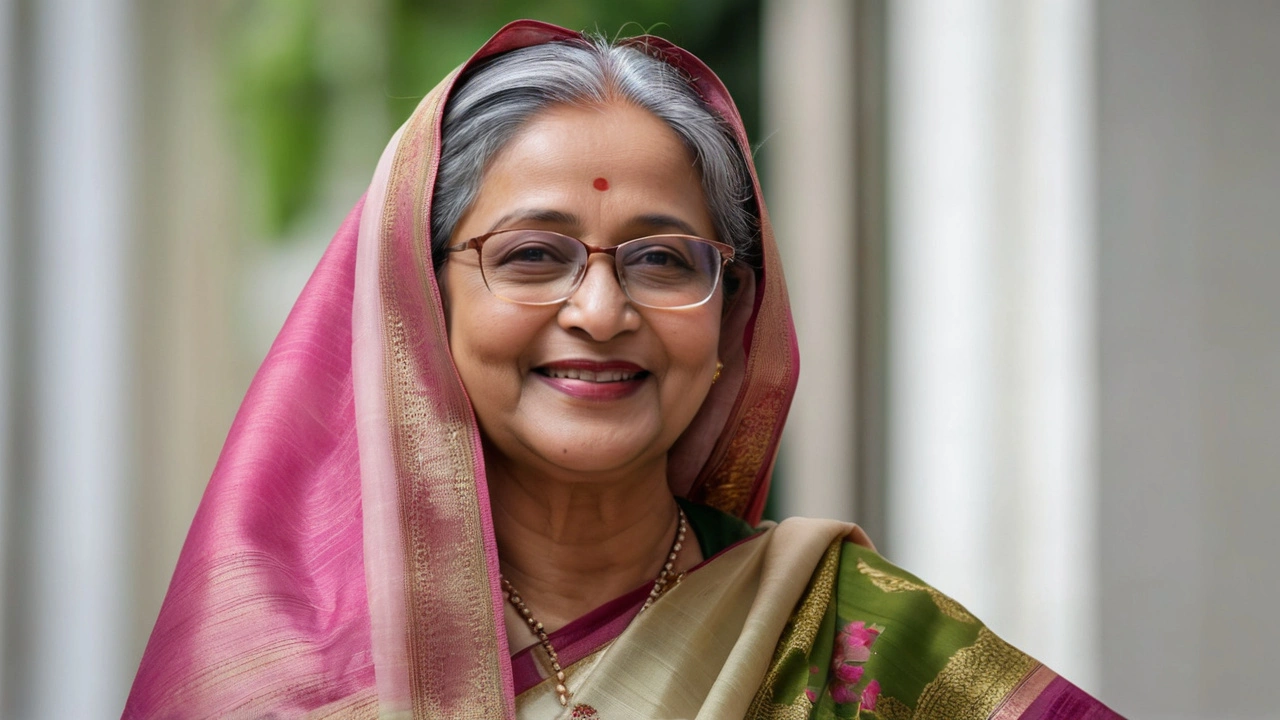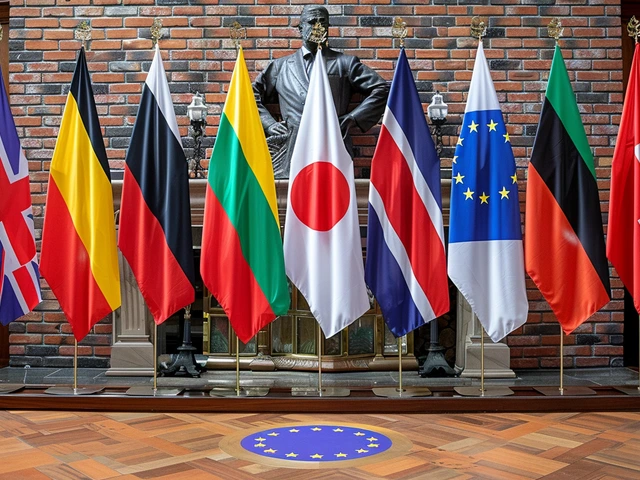Introduction
In a dramatic turn of events, Bangladesh has been thrown into political chaos as Prime Minister Sheikh Hasina has resigned and fled the country in the face of mounting anti-government protests. These demonstrations, which began as peaceful rallies, quickly escalated into violent confrontations between protesters and law enforcement. The unrest has resulted in the deaths of at least 91 people, with countless others injured. The nation's army chief has since stepped in, announcing the formation of an interim government aimed at restoring order.
The Trigger Behind the Protests
While the protests may have come as a shock to outsiders, they were the result of long-simmering grievances among the Bangladeshi population. Citizens have been frustrated by a range of issues, including economic instability, rising unemployment rates, and concerns over political corruption. Many felt that the government, under Sheikh Hasina's leadership, was not addressing these problems adequately, and the discontent boiled over into public demonstrations.
One key issue that fueled the protests was the economic situation in the country. Bangladesh, once hailed as a success story for its rapid economic growth, has recently been grappling with inflation, a dwindling job market, and increasing living costs. Families have found it harder to make ends meet, and many young people have struggled to find employment. These economic woes, compounded by a sense of political disenfranchisement, created a powder keg just waiting to explode.
From Peaceful Protests to Violent Clashes
The initial protests began with rallies and marches in various cities, calling for governmental reform and greater transparency. However, as the government appeared unresponsive, the demonstrations grew larger and more intense. The turning point came when protesters in Dhaka stormed the Prime Minister's residence, an action that dramatically escalated the situation. Clashes with police forces became inevitable, leading to widespread violence and tragic loss of life.
Sheikh Hasina's Resignation and Its Aftermath
With the situation spiraling out of control, Prime Minister Sheikh Hasina made the sudden decision to resign and leave the country. Her departure was announced by the army chief, who stepped in to try and stabilize the situation. Presented as a move to protect the nation from further bloodshed, this decision brought a momentary pause to the immediate crisis but didn't resolve the underlying issues driving the unrest.
The army chief's declaration of an interim government is an attempt to reestablish order, but it remains to be seen how this will unfold. The interim authorities face the monumental task of addressing the root causes of the protests while managing the country's day-to-day operations. Restoring public confidence and ensuring stability is paramount, but this is no easy feat given the deeply entrenched issues at play.
The Human Cost of Political Unrest
As the dust begins to settle on the immediate chaos, the human cost of the political turmoil comes into stark focus. The death toll of 91 is a tragic number, representing individuals who lost their lives in the quest for change. Additionally, scores of others were injured in the violent clashes, with many bearing physical and emotional scars that will take years to heal. The ripple effects extend beyond the casualties, impacting families, communities, and the nation as a whole.

Looking Ahead
The future of Bangladesh is uncertain. The interim government has a daunting task ahead, not only in terms of restoring order but also in addressing the economic and political grievances that led to the unrest. International observers and local citizens alike are watching closely, hoping for a peaceful resolution that paves the way for long-term stability and prosperity. The eyes of the world remain fixed on Bangladesh, as it navigates these tumultuous times.







Amrit Moghariya August 6, 2024
So the PM fled and the army just took over? Classic. Next up: military parade with a side of ration cards. At least now we can all agree the system’s broken. But let’s be real-this wasn’t about corruption or jobs. It was about a generation tired of being told to be patient while the elite kept getting richer.
And don’t get me started on how fast the West switched from ‘democracy champion’ to ‘oops, we’re neutral now’.
shubham gupta August 6, 2024
The economic pressures have been building for years. Wage stagnation, inflation hitting essentials, youth unemployment over 40% in some regions. The protests weren’t spontaneous-they were the endpoint of a decade of ignored warnings. The interim government needs to prioritize transparency in spending and rebuild trust, not just restore order.
Gajanan Prabhutendolkar August 7, 2024
Let’s not pretend this was about the people. This was a CIA-backed regime change disguised as a popular uprising. The same actors who destabilized Syria and Venezuela are now in Dhaka. Look at the timing-right after the new China-Bangladesh trade deal was signed. Coincidence? Or is the West scared of losing another strategic foothold in South Asia? The army’s interim rule is just the first act. Wait for the IMF to show up with their ‘structural adjustments’.
ashi kapoor August 8, 2024
I mean… honestly? I’m not surprised. I’ve had cousins in Dhaka texting me for years about how the police would just vanish when someone got hurt by a politician’s son, but if you dared to protest? Boom. Vanished. And the economy? My sister’s a teacher-she makes 18k BDT a month. Rent is 12k. Groceries? 6k. She’s got two kids. No savings. No hope. The fact that people took to the streets after all this? That’s courage. Not chaos. The army’s stepping in? Fine. But if they don’t jail the corrupt oligarchs, this’ll just happen again in five years. And I’ll be here, crying into my chai, watching it all repeat.
Yash Tiwari August 9, 2024
The failure of governance in Bangladesh is not merely administrative-it is ontological. The state, under Hasina, had ceased to function as a legitimate political entity and instead became a rent-seeking apparatus. The protests, though violent, were a necessary catharsis. The army’s interim administration, while pragmatic, lacks the moral authority to reconstruct civic legitimacy. Without institutional reform-specifically, the depoliticization of the judiciary and the establishment of an independent electoral commission-the interim government is merely a temporary scaffold over a collapsing edifice.
Mansi Arora August 11, 2024
I swear if the army says ‘we’re here to protect democracy’ one more time imma scream. They arrested 3000 students last year for holding a book club. Now they’re the good guys? And the PM ran? With her diamonds? I saw a video of her private jet taking off from Dhaka with a whole pallet of luxury handbags. Meanwhile, my cousin’s dad got shot for holding a sign that said ‘fair wages’. The system is rotten. Not just corrupt. Rotting. Like meat left in the sun.
Amit Mitra August 11, 2024
I’ve lived in both India and Bangladesh, and the cultural resilience here is extraordinary. The protests weren’t just about politics-they were about dignity. People who’ve survived floods, cyclones, and poverty still stood up. The army’s intervention might prevent immediate bloodshed, but real healing requires listening. Not just to elites or generals, but to the street vendors, the garment workers, the students who lost friends. The world talks about Bangladesh’s GDP growth. No one talks about its human cost. Maybe now, finally, someone will.
sneha arora August 12, 2024
i just wanna say… everyone who lost someone… i’m so sorry 💔 i know it feels like no one sees you but the world is watching. please stay strong. and to everyone still out there… you’re not alone. we’re all rooting for peace. 🌸
Sagar Solanki August 13, 2024
The structural contradictions of late-stage neoliberalism in the Global South have reached their dialectical climax. The bourgeoisie, having exhausted its ideological legitimacy, now relies on coercive apparatuses to maintain surplus extraction. The army’s interim governance represents not a rupture but a reconfiguration of hegemony-what Gramsci would call ‘passive revolution’. The real threat isn’t the protesters-it’s the neoliberal technocrats waiting in the wings to monetize the chaos through austerity measures disguised as ‘reform’.
Siddharth Madan August 13, 2024
Hope they fix the power grid next. No one can focus on democracy when the lights go out every two hours.
Nathan Roberson August 13, 2024
Man, I remember when Bangladesh was called the next tiger economy. Now it’s just… a mess. But honestly? I think the army’s the only thing holding it together right now. Just hope they don’t stay too long. People need real leaders, not just guys in uniforms.
Thomas Mathew August 14, 2024
This is the end of an era. The fall of Hasina is not just political-it is mythological. She was the phoenix who rose from the ashes of post-liberation chaos, only to become the dragon hoarding the kingdom’s gold. Now the phoenix is ash, the dragon is gone, and the kingdom is silent. What rises next? A new phoenix? Or a jackal in a suit? The gods of history are watching. And they are not kind.